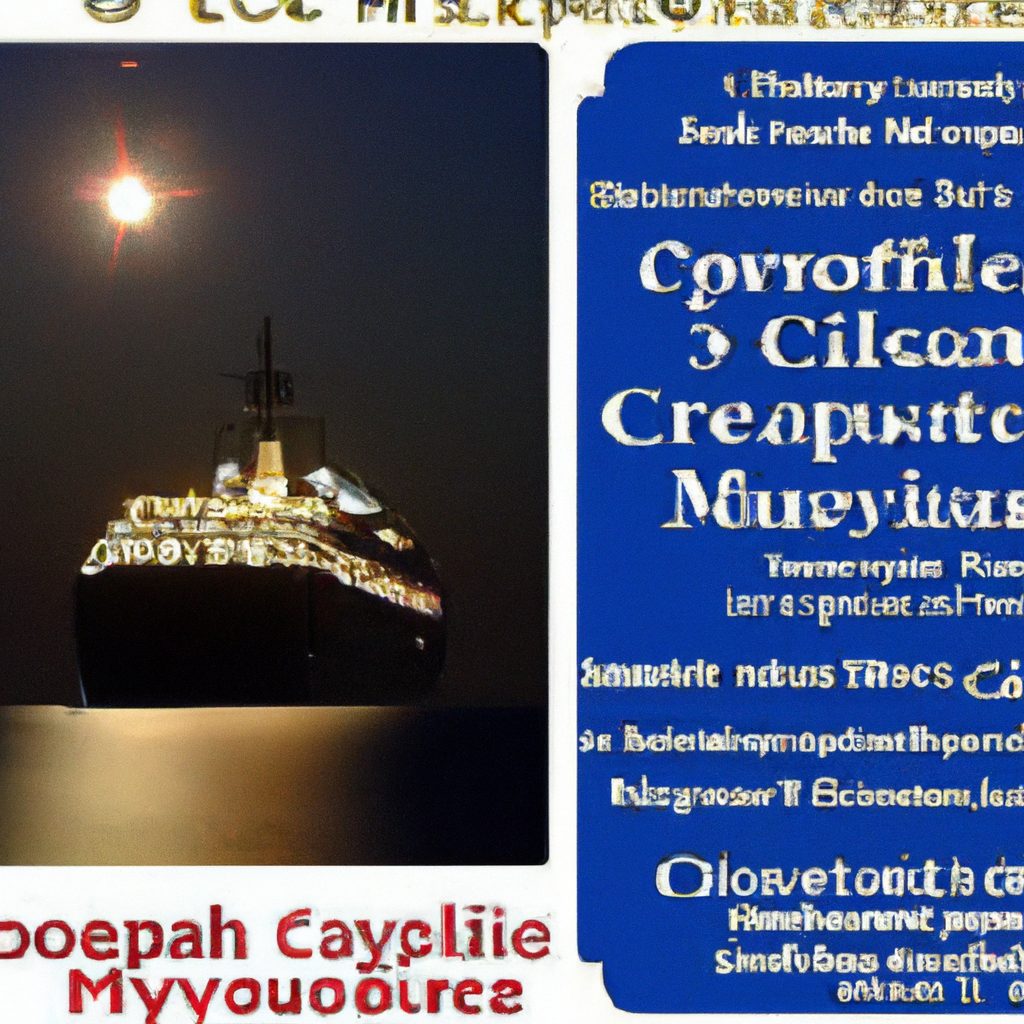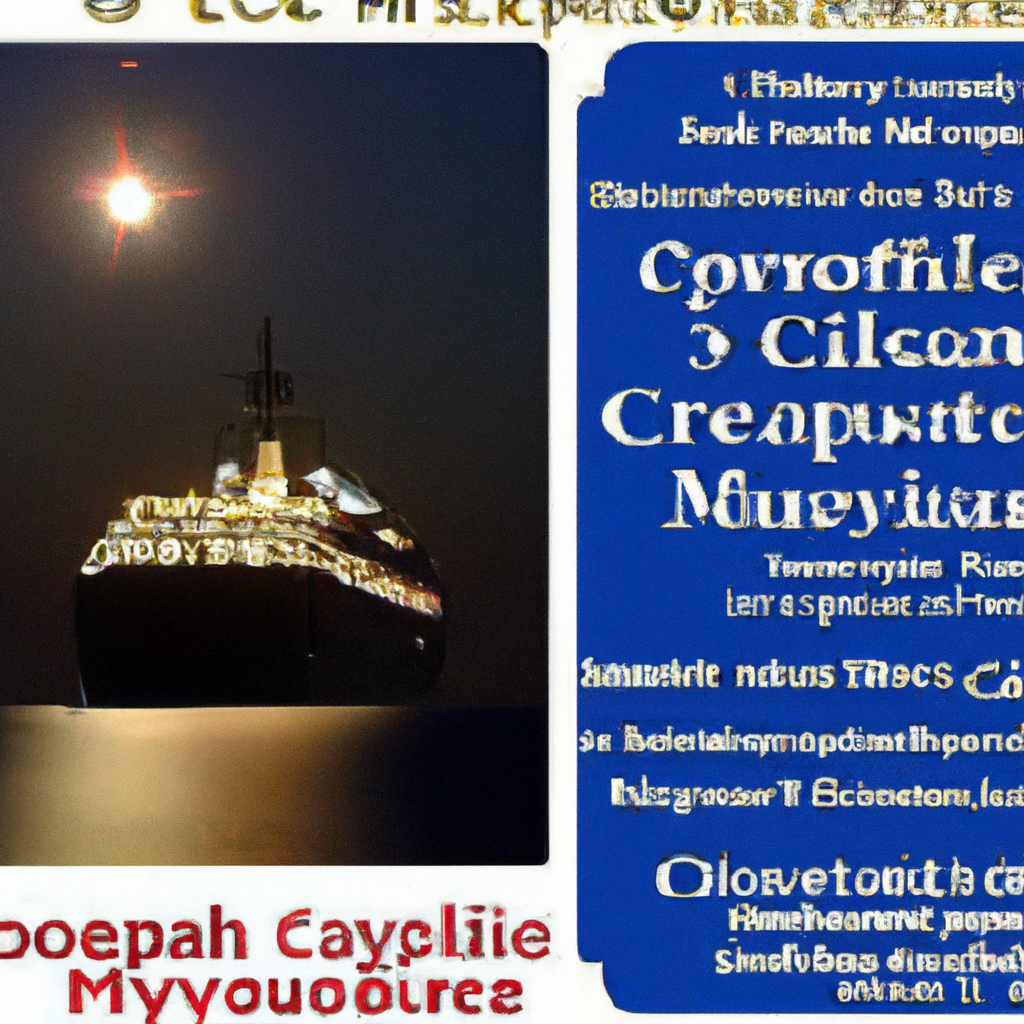Get ready to immerse yourself in the vibrant culture of the Greek Islands as you explore the amazing festivals and celebrations that take place there. From traditional dance performances to religious processions, these events offer a unique glimpse into the rich history and customs of the Greek people. Whether you are an art enthusiast, a history buff, or simply someone who loves a good party, the festivals on the Greek Islands are sure to leave you mesmerized and wanting to come back for more. So pack your bags and prepare to be swept away by the infectious energy and joyous atmosphere of these incredible celebrations.
Heading 1: Festivals and Celebrations in Greece
Subheading 1: A Rich Tradition
Greece is a country known for its rich tradition of festivals and celebrations. Throughout the year, various events take place, each offering a unique insight into the Greek culture and heritage. These festivals have been celebrated for centuries, passed down from generation to generation, and continue to hold great significance in the lives of the Greek people. Whether they are religious, historical, or purely for entertainment, these celebrations provide an opportunity to come together, celebrate, and honor the diverse traditions of Greece.
Subheading 2: A Cultural Showcase
Festivals in Greece are more than just occasions for merriment; they are an important cultural showcase. From the stunning array of traditional costumes and folk dances to the mouthwatering gastronomic delights and captivating music, these festivals offer a glimpse into the unique beauty of Greek culture. The Greeks take great pride in showcasing their customs and traditions during these celebrations, making them a vibrant and unforgettable experience for both locals and tourists alike.
Subheading 3: Historical Significance
Greece is a country steeped in history, and many festivals and celebrations hold significant historical importance. These events provide an opportunity for Greeks to commemorate significant moments in their past and pay tribute to their ancestors. From the Independence Day celebrations to the Liberation of Crete, these festivals serve as a reminder of the country’s struggle for freedom and its resilience in the face of adversity. By participating in these historical celebrations, Greeks ensure that their past is never forgotten and that future generations continue to appreciate their heritage.
Heading 2: The Greek Islands and Their Festivals
Subheading 1: Introduction to Greek Islands
The Greek Islands are renowned for their picturesque landscapes, crystal-clear waters, and vibrant culture. Each island has its own distinct charm and character, making it a popular destination for tourists from around the world. Along with their natural beauty, the Greek Islands are also known for the numerous festivals and celebrations that take place throughout the year. These events offer a unique opportunity to immerse yourself in the local culture, experience traditional customs, and witness the lively spirit of the islanders.
Subheading 2: Diversity of Greek Islands
One of the remarkable aspects of the Greek Islands is their incredible diversity. Each island has its own unique traditions, customs, and festivals that reflect the distinct character of the local community. From the laid-back atmosphere of the Cyclades to the lively celebrations of the Dodecanese, there is something for everyone. Whether you’re looking for a peaceful retreat or a vibrant party scene, the Greek Islands have it all. Exploring these diverse islands and experiencing their festivals is a truly enriching experience that allows you to delve into the heart and soul of Greece.
Subheading 3: Importance of Festivals on the Greek Islands
Festivals play a crucial role in the lives of the people on the Greek Islands. Not only do they provide an opportunity for locals to come together and celebrate, but they also have a significant impact on the economy and tourism of the islands. These festivals attract visitors from all over the world, who come to enjoy the unique cultural experiences and immerse themselves in the local traditions. The festivals contribute to the preservation of Greek heritage and help showcase the islands as vibrant destinations for cultural tourism. Moreover, the economic benefits gained from these events provide support to the local communities and contribute to the overall development of the Greek Islands.

Heading 3: Religious Festivals
Subheading 1: Easter Celebrations
Easter is one of the most important religious festivals in Greece and is celebrated with great fervor and enthusiasm. The entire country comes alive with a series of events and religious rituals that span over several days. From Good Friday processions to midnight church services and the symbolic cracking of red-dyed eggs on Easter Sunday, the Easter celebrations offer a profound insight into Greek Orthodox traditions. The island of Corfu is particularly famous for its unique Easter festivities, including the “pot-throwing” tradition, where residents hurl pots out of their windows to rid themselves of evil spirits.
Subheading 2: Panagia Festivals
Panagia, meaning “All Holy,” is a term used to refer to the Virgin Mary in the Orthodox Christian tradition. Throughout Greece, numerous villages and towns have Panagia as their patron saint, and festivals are held in her honor. These festivals consist of religious processions, church services, and traditional music and dance performances. The island of Tinos is renowned for its Panagia Festival, where thousands of pilgrims gather to pay their respects to the Virgin Mary at the Church of Panagia Evangelistria, which is believed to have miraculous healing powers.
Subheading 3: Feast of St. John the Baptist
The Feast of St. John the Baptist, also known as “Midsummer,” is celebrated throughout Greece on the 24th of June each year. This festival is particularly vibrant on the island of Chios, where locals engage in a unique tradition known as the “Rocket War.” Two rival parishes, Agios Markos and Panagia Erithiani, shoot rockets at each other’s church bell towers, attempting to hit the target. The breathtaking spectacle attracts thousands of visitors who come to witness this explosive event, making it one of the most popular festivals on the island.
Heading 4: Local Traditions
Subheading 1: Carnival Celebrations
Carnival is a time of joy and celebration in Greece, with festivities taking place in various parts of the country. One of the most famous Carnival celebrations is held in the town of Patras, where locals and visitors alike gather to participate in the extravagant parades and street parties. The highlight of the Patras Carnival is the “Grand Parade,” featuring colorful floats, vibrant costumes, and lively music. Masked revelers fill the streets, dancing and singing, creating a festive atmosphere that spreads throughout the town.
Subheading 2: Wine Festivals
Greece has a long and storied history of winemaking, and its wine festivals are an excellent opportunity to sample some of the finest Greek wines. These festivals are held throughout the year and are a celebration of the country’s rich viticultural heritage. Visitors can enjoy wine tastings, vineyard tours, and cultural performances, all while experiencing the warmth and hospitality of the locals. The island of Santorini, with its volcanic soil and unique terroir, is particularly renowned for its wine festivals, attracting oenophiles from around the world.
Subheading 3: Olive Harvest Festivals
Olive oil is a staple of Greek cuisine, and the olive harvest festivals are a celebration of this vital agricultural product. These festivals, held in olive-growing regions across the country, mark the beginning of the olive harvest season. Visitors can participate in traditional olive oil production methods, such as handpicking olives and pressing them into oil. The festivals also feature live music, dancing, and of course, delicious local dishes infused with the rich flavors of olive oil.

Heading 5: Music and Dance Festivals
Subheading 1: International Music Festivals
Greece is a hub of music and boasts several international music festivals that attract renowned artists from around the globe. One of the most prominent music festivals is the Athens Epidaurus Festival, held in the ancient Odeon of Herodes Atticus theater. This festival showcases a diverse range of performances, including classical music, opera, theater, and dance, against the backdrop of ancient ruins. These events offer a unique blend of culture, history, and entertainment, creating an unforgettable experience for music enthusiasts.
Subheading 2: Traditional Folk Dances
Greek traditional folk dances are an integral part of the country’s cultural heritage. These dances are characterized by intricate footwork, lively music, and colorful costumes. Throughout Greece, various festivals and events are dedicated to showcasing the beauty and diversity of traditional Greek dances. The island of Rhodes hosts the annual “Panigiri dancing festival,” where locals and visitors gather to participate in spirited dance performances, accompanied by traditional music. These festivals offer an opportunity to learn the steps, join in the celebrations, and experience the joy of Greek dance firsthand.
Subheading 3: Summer Music Festivals
During the summer months, the Greek Islands come alive with an array of music festivals. These events cater to various musical tastes, ranging from jazz and classical to rock and electronic music. One of the most famous summer music festivals is the Rockwave Festival, held in Athens, which attracts both local and international artists. The festival combines stunning performances with an electric atmosphere, making it a must-visit for music lovers visiting Greece during the summer.
Heading 6: Food Festivals
Subheading 1: Gastronomic Delights
Greek cuisine is renowned for its delicious flavors and healthy Mediterranean ingredients. Food festivals provide an excellent opportunity to indulge in the gastronomic delights of Greece. These festivals showcase a variety of traditional dishes, from moussaka to souvlaki, spanakopita to baklava. Visitors can sample a multitude of Greek specialties, prepared with love and authenticity by local chefs. Whether you’re a food lover or simply looking to experience Greek cuisine at its finest, these festivals are a treat for the taste buds.
Subheading 2: Greek Cuisine Showcase
Greek cuisine festivals aim to promote and preserve the traditional recipes and cooking techniques that have been passed down through generations. These events feature cooking demonstrations, culinary workshops, and food tasting sessions, allowing visitors to learn about the secrets behind Greek cooking. The island of Crete is famous for its gastronomic festivals, where visitors can savor Cretan delicacies and discover the unique flavors of the Mediterranean diet.
Subheading 3: Local Specialty Festivals
Each region in Greece has its own distinct culinary specialties, and local specialty festivals allow visitors to experience these unique flavors firsthand. From the sea-inspired cuisine of the island of Hydra to the cheese-focused gastronomy of the island of Naxos, these festivals offer a deeper understanding of the regional cuisine. Visitors can taste local delicacies, attend cooking workshops, and learn about the ingredients that make each region’s cuisine so special.
Heading 7: Historical and Cultural Celebrations
Subheading 1: Independence Day
Independence Day, celebrated on the 25th of March, holds immense historical and cultural significance in Greece. It commemorates the day in 1821 when Greece declared its independence from the Ottoman Empire after years of struggle. Cities and towns throughout Greece hold parades, flag-raising ceremonies, and school performances to honor this important day in Greek history. The largest and most impressive celebration takes place in Athens, where a grand military parade is held, attracting thousands of spectators.
Subheading 2: Liberation of Crete
The Liberation of Crete, also known as Crete’s National Day, is celebrated on the 25th of August each year. This day commemorates the liberation of Crete from German occupation during World War II. The island of Crete comes alive with a series of events, including concerts, exhibitions, and historical reenactments. The highlight of the celebrations is the torchlight procession, where thousands of locals and visitors march through the streets of Heraklion with lit torches, paying tribute to the brave Cretans who fought for freedom.
Subheading 3: Venetian Festivals
The influence of the Venetians on Greek history and culture is celebrated through a series of Venetian festivals held in various parts of the country. These events pay homage to the Venetian legacy, featuring theatrical performances, music concerts, art exhibitions, and historical reenactments. The island of Corfu is particularly famous for its Venetian Carnival, where locals and visitors don elaborate costumes and masks, recreating the atmosphere of medieval Venetian balls. The festival culminates with the “Great Parade,” a magnificent spectacle of floats, street performers, and traditional music.
Heading 8: Art and Film Festivals
Subheading 1: Athens Film Festival
The Athens Film Festival, held annually in September, is a celebration of Greek and international cinema. The festival showcases a diverse selection of films, ranging from independent productions to mainstream blockbusters. In addition to film screenings, the festival also hosts workshops, seminars, and panel discussions, offering a platform for filmmakers from around the world to network and exchange ideas. The Athens Film Festival is an important event in the Greek cultural calendar, attracting both film enthusiasts and industry professionals.
Subheading 2: Santorini Biennale
The Santorini Biennale is a unique art festival held on the stunning island of Santorini. This event brings together artists from different disciplines, including painting, sculpture, installation art, and performance art. The festival creates a dynamic platform for artists to exhibit their work and engage in dialogue with one another. Set against the backdrop of Santorini’s breathtaking scenery, the Santorini Biennale offers a truly immersive experience for art lovers.
Subheading 3: ARTE.M Summer Festival
The ARTE.M Summer Festival takes place in the picturesque town of Rethymno, on the island of Crete. This multidisciplinary festival celebrates the arts in all its forms, including visual arts, theater, music, and dance. The festival features a diverse range of performances, exhibitions, and workshops, attracting both local and international talent. Visitors can immerse themselves in the vibrant cultural scene of Crete, enjoying thought-provoking exhibitions and captivating live performances.
Heading 9: Sports and Athletic Events
Subheading 1: Athens Marathon
The Athens Marathon is one of the most iconic marathons in the world, tracing the historic route from the town of Marathon to Athens. This legendary race commemorates the run of the Athenian soldier Pheidippides, who is said to have run from Marathon to Athens to deliver the news of victory during the Battle of Marathon in 490 BC. The marathon attracts thousands of participants from around the world, offering them the opportunity to run in the footsteps of ancient Greek history and culture.
Subheading 2: Olympic Torch Relay
The Olympic Torch Relay is a symbolic tradition that marks the beginning of the Olympic Games. The torch is lit in Olympia, Greece, and then travels around the country, passing through various cities and towns before reaching the host city of the Olympic Games. As the birthplace of the Olympic Games, Greece holds a special place in Olympic history, and the torch relay serves as a reminder of the country’s contribution to the sporting world. Locals and visitors alike gather along the route to witness the passing of the torch and participate in the festive atmosphere.
Subheading 3: Sailing Regattas
Greece’s crystal-clear waters and favorable wind conditions make it an ideal destination for sailing enthusiasts. Throughout the year, various sailing regattas and races are held in different parts of the country, attracting sailors from around the world. The Aegean Regatta, held annually in the Cyclades, is one of the most prestigious sailing events in Greece. Participants compete in a series of races, showcasing their skills and enjoying the beauty of the Greek Islands from the deck of their sailboats.
Heading 10: Unique Festivals
Subheading 1: Tomato Festival in Santorini
The Tomato Festival in Santorini is a unique celebration of the island’s famous tomatoes. Held in August, this festival invites visitors to engage in tomato fights, where participants throw ripe tomatoes at each other in a friendly, tomato-induced frenzy. The festival also offers food tastings, traditional music and dance performances, and local artisanal products related to tomato cultivation. The Tomato Festival is a colorful and lively event, allowing participants to embrace the joy and messiness of this peculiar tradition.
Subheading 2: Rocket War in Chios
The Rocket War in Chios is a traditional event that takes place every Easter on the island of Chios. Two rival parishes, Vrontados and Agios Markos, engage in an impressive display of pyrotechnics, shooting rockets at each other’s church bell towers. The aim is to hit the target and “bring down” the opponent’s bell tower. This unique and thrilling event attracts thousands of spectators who gather to witness the spectacle and experience the electrifying atmosphere of the Rocket War.
Subheading 3: Watermelon Festival in Naxos
The Watermelon Festival in Naxos is an annual celebration of the island’s most refreshing fruit. This festival is held in July, coinciding with the peak of watermelon season. Visitors can indulge in unlimited watermelon tasting, enjoy live music performances, and witness traditional dances and cultural performances. The festival creates a joyful and playful atmosphere, perfect for beating the summer heat and celebrating the bounty of Naxos.
In conclusion, the festivals and celebrations in Greece offer a captivating glimpse into the rich tradition, vibrant culture, and significant history of the country. Whether you’re seeking religious, artistic, culinary, or athletic experiences, Greece’s festivals cater to a diverse range of interests. From the Greek Islands to the mainland, these celebrations provide an opportunity to immerse yourself in the local customs, savor delicious delicacies, marvel at stunning performances, and create lasting memories. So, pack your bags, get ready to embrace the spirit of festivity, and embark on a journey to experience the amazing festivals and celebrations that Greece has to offer.
